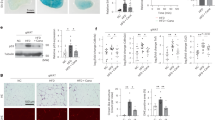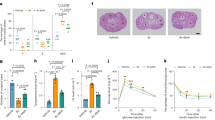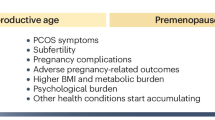Abstract
The objective of this study was to determine the effects of androgen depletion by 5α-reductase inhibitor (eg epristeride), pure antiandrogen (eg casodex) or C17-20 lyase inhibitor (eg YM116) on rat prostate carcinogenesis induced by administration of 3,2′-dimethyl-4-aminobiphenyl (DMAB).
DMAB was subcutaneously administered on male F344 rats for the first 20 weeks. Epristeride (10 and 50 mg/kg, three times per week), casodex (15 and 30 mg/kg, three times per week) or YM116 (15 and 30 mg/kg, three times per week) were administered orally for 40 consecutive. Then, all accessory sex organs were studied for the formation of neoplastic lesions by histological examination.
All carcinoma lesions were produced only in the ventral lobe of the prostate. The incidence of carcinoma developing in the ventral lobe of the prostate was 9.5% in the control group on which DMAB alone was administered, whereas it was 31.6% in the epristeride 10 mg/kg group. 45.0% in the epristeride 50 mg/kg group, 47.8% in the casodex 15 mg/kg group, 63.2% in the casodex 30 mg/kg group, 10.5% in the YM116 15 mg/kg group and 5.0% in the YM116 30 mg/kg group. The incidences of carcinoma in the epristeride 10 mg/kg group, casodex 15 mg/kg group and casodex 30 mg/kg group were significantly higher than that of the control group. In this experimental model, all ventral prostate carcinomas were in situ adenocarcinomas that did not form palpable nodules or distant metastasis.
Epristeride and casodex showed a dose-dependent promoting effect on rat ventral prostate carcinogenesis. These results were contradictory to the results of our previous studies; exogenous testosterone in combination with DMAB produced palpable, and metastatic tumors in other portions of accessory sex organs of F344 rats but no carcinoma in ventral prostate, and those invasive carcinomas were significantly inhibited by 5α-reductase inhibitor and nonsteroidal anti-androgen. The action mechanisms of androgen and the effects of androgen-regulatory drugs on prostate carcinogenesis should be further studied.
This is a preview of subscription content, access via your institution
Access options
Subscribe to this journal
Receive 4 print issues and online access
$259.00 per year
only $64.75 per issue
Buy this article
- Purchase on Springer Link
- Instant access to full article PDF
Prices may be subject to local taxes which are calculated during checkout
Similar content being viewed by others
Author information
Authors and Affiliations
Rights and permissions
About this article
Cite this article
Akaza, H., Tsukamoto, S., Morita, T. et al. Promoting effects of antiandrogenic agents on rat ventral prostate carcinogenesis induced by 3,2′-dimethyl-4-aminobiphenyl (DMAB). Prostate Cancer Prostatic Dis 3, 115–119 (2000). https://doi.org/10.1038/sj.pcan.4500409
Received:
Revised:
Accepted:
Published:
Issue Date:
DOI: https://doi.org/10.1038/sj.pcan.4500409



